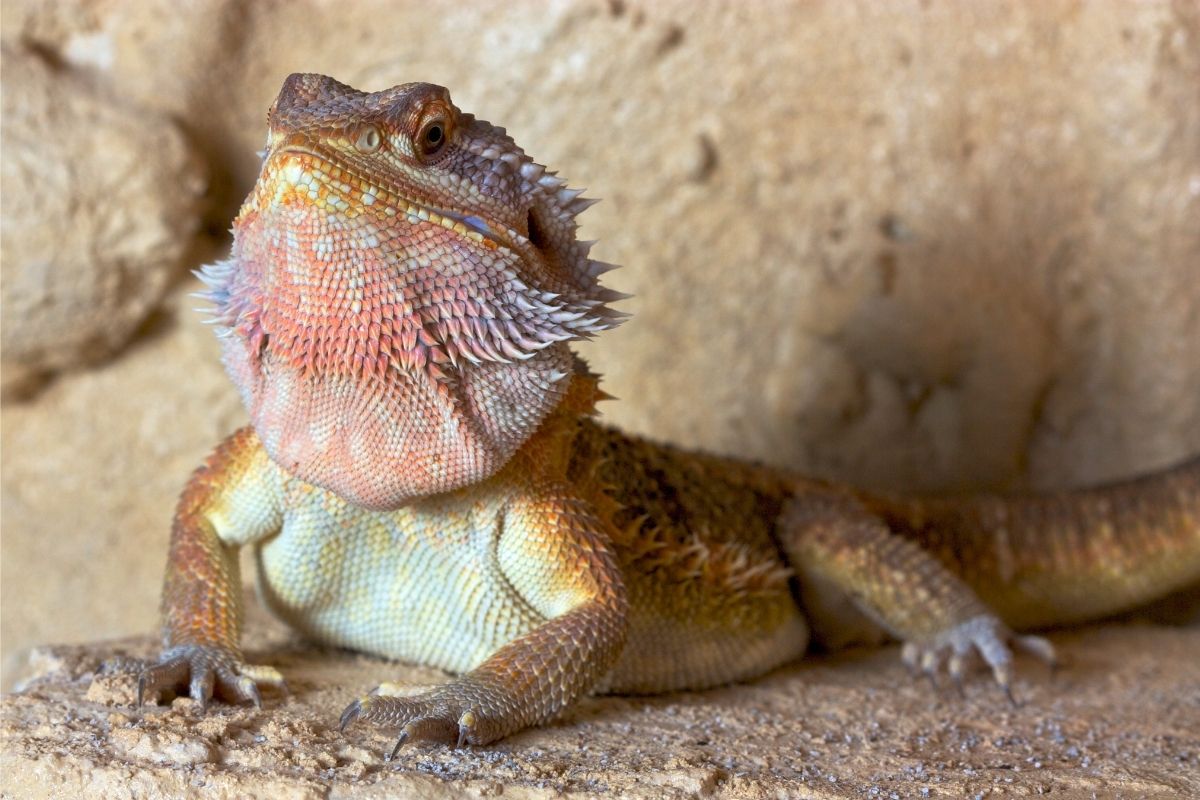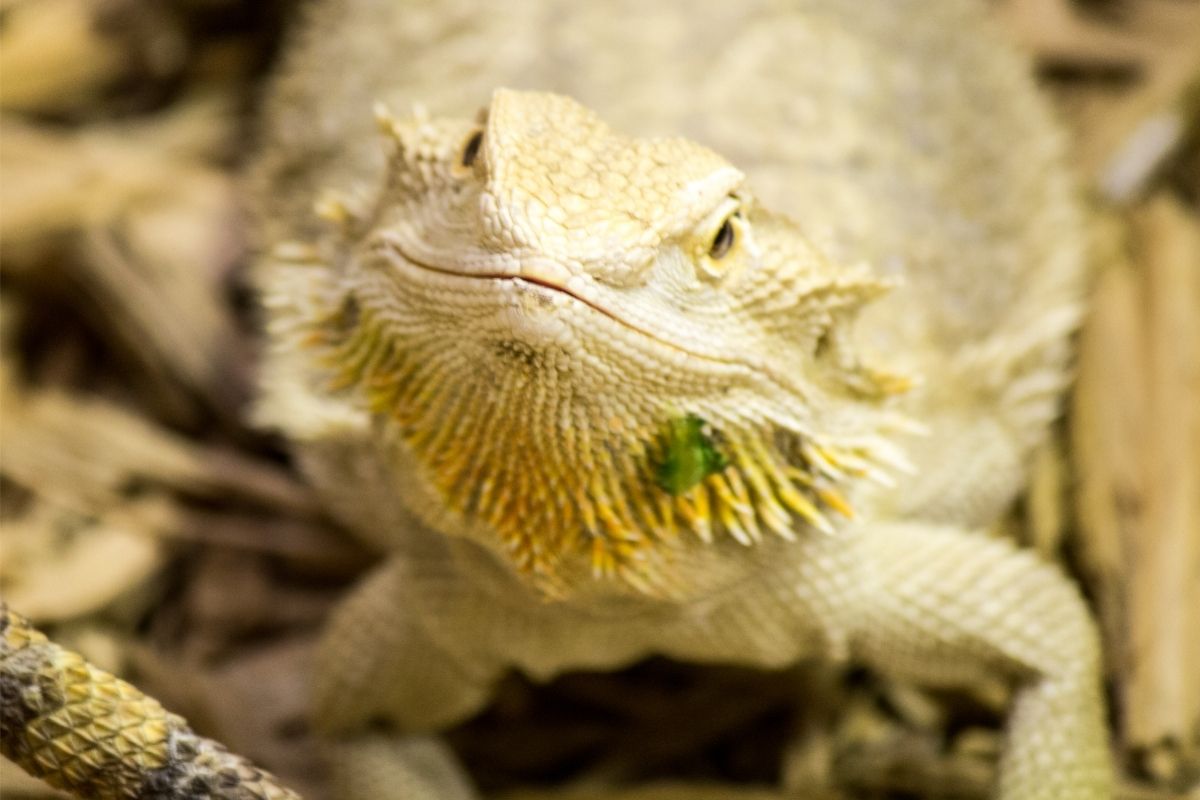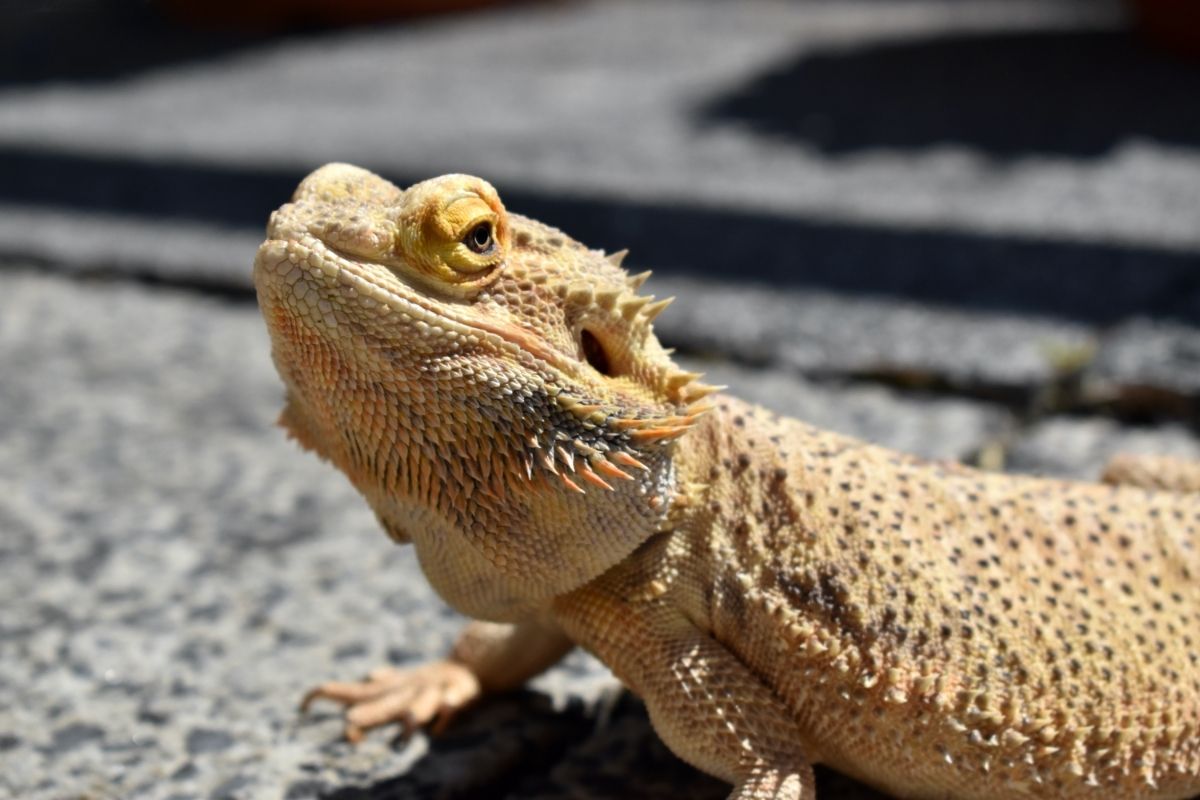We all want what is best for our pets, and as owners of a bearded dragon, we need to know the best things to feed them to keep them fit and healthy.
Fruit and vegetables are important in keeping a human healthy, but this might not necessarily be the case when we’re talking about bearded dragons.

One of the most popular fruits is watermelon due to its size and taste – but can you feed your bearded dragon a watermelon?
The short answer is yes! Bearded dragons are totally okay to eat watermelon, as long as it’s part of a balanced, nutritional diet and as an infrequent treat.
This is the case with most fruits because of the sugar content, the calories, and the general lack of high nutritional value.
The fact is, though, there’s a lot more to their diet than this and how watermelon should be included as a part of their food program.
So, going by what expert nutritionists have said – we’ve collated a handy guide for you to read through, which will hopefully answer some of your biggest questions regarding bearded dragons and watermelons.
So, here we go!
What Nutritional Value Do Watermelons Have Anyway?
When we are thinking about introducing something new to our bearded dragon’s diet, we should first understand all of its nutritional value before we feed them.
It’s always advised to read the label when you’re about to consume a product, and the same goes for your pets.
So, when we’re talking about watermelon – what nutritional value does it have? We’ve listed that below:
The “Label” – Nutritional Value Per 100g Of Watermelon
Here’s what you can expect:
- Energy – 30 Kcal
- Water – 91.45g
- Carbohydrate – 7.55g
- Protein – 0.61g
- Lipid Fats – 0.15g
- Fiber – 0.4g
- Sugars – 6.2g
- Phosphorus – 11 mg
- Sodium – 1 mg
- Iron – 0.24 mg
Then there are the important vitamins in watermelon, which include:
- Vitamin A – 28 mg
- Vitamin B6 – 0.045 mg
- Vitamin C – 8.1 mg
- Vitamin E – 0.05 mg
- Vitamin K – 0.1 mg
As we can see, there are a few nutritional benefits, but much lower than some other fruits available on the market.
So, Are There Any Benefits To Feeding Your Bearded Dragon Watermelon?
Although watermelon is safe for bearded dragons to consume, there’s little nutritional benefit for them to consume it, as we can see from the list above.
Generally speaking, bearded dragons don’t receive much nutritional advantage from fruits due to their high sugar, fiber, and calorie content anyway, and should be reserved solely as a treat for them.
This is not to say that bearded dragons wouldn’t like eating watermelon or fruits, though – in fact, they’d love to wolf down a lot of the fruit if they could!
This is because bearded dragons adore the smell, taste, and texture of sugary fruits.
In some respects, you could see this as an advantage if your bearded dragon has been eating less than usual because you could mix up the watermelon with things that they really need, like green vegetables.
All you’d need to do is cut up vegetables and watermelon into small, manageable sections and stir them up in a bowl for them to eat.
If, however, your bearded dragon is still refusing to eat – you’d be advised to speak with a vet as soon as possible in case it is something serious.
Are There Any Cons To Feeding Your Bearded Dragon Watermelon?

Unfortunately, there are plenty more cons to feeding your pet watermelon rather than any benefits.
We’re going to break these down into smaller sections, so we can examine them further.
Too Much Sugar
The biggest problem with watermelon, and most fruits in general for that matter, is that they are incredibly high in sugar.
Although the sugar is not as bad for animals as refined sugar that you may find in man-made items like chocolate bars, it is still fattening and can lead to sugar-related health concerns.
Too much watermelon for a bearded dragon can lead to tooth decay and other oral-related diseases and issues.
This can be very distressing to your pet and, in some rare circumstances, can be fatal.
Additionally to this, too much sugar can cause inflammation in a bearded dragon and, if they already have an injury, can cause inflammation that is already present to be worsened.
This is another area that can make a bearded dragon feel pain and distress.
Other issues with too much sugar can be digestive issues.
Over-consumption of sugar can lead to stomach cramps, gas, bloating, and diarrhea in bearded dragons – which can be very painful for them, so it’s best to avoid feeding them too much watermelon.
But perhaps one of the worst things that too much watermelon can lead to is obesity.
Obesity is a problem with any animal and can lead to so many health conditions, mental problems, and premature death.
Calcium Levels Are Low
Calcium is critical in a bearded dragon’s bone health and strength, and watermelon has no benefit in this area.
In fact, very few fruits are plentiful in calcium, and reptiles in particular, suffer from a deficiency in calcium quite frequently, according to experts.
In order to keep your bearded dragon as fit and healthy as possible, it’s important that they have a good source of calcium and avoid oxalates and too much potassium, which can prevent the intake and absorption of calcium.
So, alongside having a balanced diet rich in vegetables and live animals, it’s significant to provide your bearded dragon with calcium supplements if they need them.
It’s a good idea to speak with your vet or pet store about the best course of action.
Is There A Recommended Frequency For Feeding Bearded Dragons Watermelon?
In terms of how often you should feed your bearded dragon watermelon, there’s no advised amount or advised frequency.
In essence, what we do know is that you probably shouldn’t feed your bearded dragon watermelon every day of the week – but this does not mean that you should cut out watermelon from their diet entirely.
Due to the high sugar content, low calcium, and lack of many other nutrients – it’s advised that you assess the amount of times you feed your bearded dragon watermelon in line with expert opinion.
Having said that, if you want a general rule of thumb – giving your bearded dragon watermelon once a month is probably going to be fine, but you should always get advice first before introducing new foods into your pet’s diet.
As long as bearded dragons are eating a balanced diet with their normal recommended foods, it will be fine to give them the occasional watermelon.
How Would I Feed My Bearded Dragon Watermelon Anyway?

One of the most important factors in feeding your bearded dragon watermelon is ensuring that you purchase organic watermelon.
Many fruits and vegetables have harmful pesticides, so purchasing organically grown and sourced ingredients is essential in keeping your bearded dragon safe and healthy.
Next, you must remember the importance of washing the watermelon thoroughly.
Many watermelons will have bacteria that can be harmful to your pet.
Washing the watermelon properly can decrease the likelihood of these bacteria transferring to your bearded dragon.
Before feeding your bearded dragon watermelon, you should remove all the seeds.
Seeds can be harmful to your pet’s digestive system, and they may struggle to eat and pass them.
You should also peel the watermelon’s skin and chop it up into small, manageable sections which can be easily eaten and not choked on.
Additionally, you should then mix the watermelon with your pet’s normal diet of vegetables and greens.
This is a good idea because it will not psychologically detract your pet away from their normal eating habits, and so they will not expect treats at each meal time.
Are There Any Other Fruits That My Bearded Dragon Could Eat?
There are several other fruits that are technically safe for bearded dragons to eat, but it is always better to avoid them due to their high sugar content, calorie levels, and fiber content.
If you are set on giving your bearded dragon some fruit, though, always remember that they will only and should only have fruit in moderation as part of their normal balanced diet.
Here are a few other fruits that a bearded dragon could eat:
- Strawberries
- Apricots
- Raspberries
- Blueberries
- Dates
- Figs
- Melons
All of these fruits have their own benefits and cons in terms of their nutritional content, but generally, they are better to avoid because of their negative aspects.
Frequently Asked Questions
It’s always a good idea to examine some of the most frequently asked questions among bearded dragon owners.
What Should A Bearded Dragon’s Diet Really Consist Of?
To give your bearded dragon the best possible diet to maintain their health and fitness, you should consider an 80/20 split.
80 percent of the bearded dragon’s diet should consist of live animals, including things like:
– Crickets
– Worms
– Ants
– Flies
The other 20 percent should be reserved for vegetables like:
– Bell peppers
– Cabbage
– Kale
– Celery
– Carrots
However, you can reserve a small percentage for fruits. Really, it should be at most 5 percent for fruits if you really want to treat your bearded dragon.
Are There Any Foods That A Bearded Dragon Should Never Eat?
There are lots of things that a bearded dragon should not eat as they can cause digestive problems or are toxic to them. They include:
– Citric fruits
– Romaine lettuce
– Shrimp
– Lobsters
– Crabs
– Potatoes
There are also some foods that should be in very small amounts because too much of it can be bad for a bearded dragon.
Things like cucumber for example – because, despite being treated as a vegetable – cucumbers are technically still a fruit.
All fruits should be reserved as a treat for your bearded dragon and never as the primary staple of their diet.
What Do Baby Bearded Dragons Eat?
Baby bearded dragons will have the same diet as adult dragons, but they will eat more frequently and with smaller portions.
Over the course of their lives, bearded dragons will begin to need less and less meat in their diet because they physically cannot burn off the calories that they are taking in.
To curtail the risk of obesity and other health concerns, you should speak with your vet about the best possible course of action.
Typically, their diet may become more focused on vegetables – but you are advised to get expert advice first.
The Bottom Line
Bearded dragons can indeed have watermelon, but much like many other fruits, it needs to be part of a balanced and healthy diet and only occasionally.
